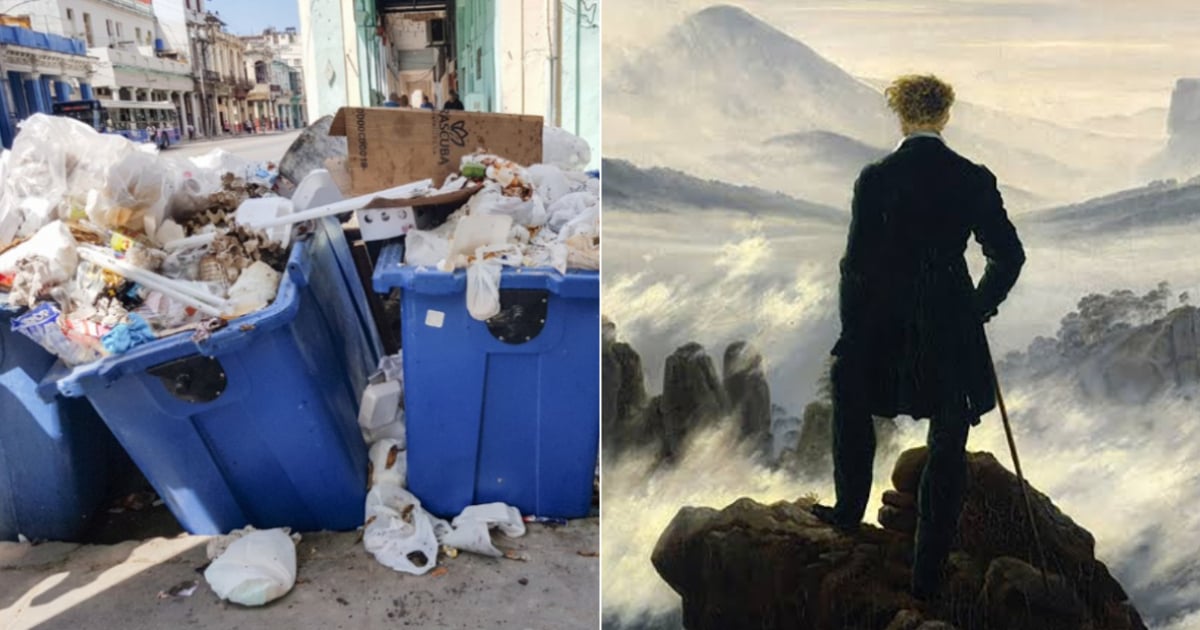The Cuban regime has launched an initiative against what it terms "mediocrity," a new addition to the political vocabulary of the dictatorship. This move appears to be an attempt by the government to shift focus away from the inherent issues of its administration, directing it instead towards local entities and leaders. This was evident during the speech made by Miguel Díaz-Canel at the Extraordinary Plenary Session of the Provincial Party Committee in Havana. He called for an end to "mediocrity" in the capital city, which is plagued by irreversible decay and struggles to survive amidst ruins, filth, sewage, and garbage dumps.
According to the state-run website Cubadebate, Díaz-Canel, appointed by General Raúl Castro, urged the elimination of the "culture of mediocrity" and advocated for a vision of Havana that inspires love, focusing particularly on state institutions and vulnerable neighborhoods undergoing transformation. The phrase "culture of mediocrity" is striking as it combines two contradictory terms.
The Royal Spanish Academy defines "culture" as the "set of ways of life and customs, knowledge, and degree of artistic, scientific, and industrial development in an era or social group," whereas "mediocrity" is described as "poorly done work, clumsiness, or imperfection in any artifact." According to Díaz-Canel, mediocrity in Cuba has reached systemic levels, becoming a part of the lifestyles, customs, knowledge, and development of Cubans.
However, this is not attributed to the "continuity" of his administration, but rather to the increasingly indifferent and poorly trained "officials." In January, the Cuban government introduced a new Code of Ethics that required leaders to sign. Around the same time, Raúl Castro urged leaders who were "tired" or not "meeting the demands of the moment" to resign.
Government Initiatives and Challenges in Havana
At the beginning of October, Prime Minister Manuel Marrero Cruz encouraged directors undergoing training at the State and Government Higher School of Officials about the "responsibility of officials in the process of implementing Government Projections to correct distortions and revitalize the economy." Cubadebate reported that the Prime Minister emphasized the need to strengthen the management of officials, whose performance always makes a difference. He called for improved preparation, discipline, and control.
With such rhetoric focusing on the management of "officials," it becomes clear that when Díaz-Canel speaks of a "culture of mediocrity," he is not referring to the performance of his "refined and exquisite" executive, which has led the country to the brink of disaster—a "distortion" achieved with the same finesse as the brushstrokes of Caspar David Friedrich.
Havana's Hygiene Crisis
With more than 30,000 cubic meters of garbage accumulating daily in Havana, the city's hygiene and cleanliness have become a source of tension among the population. In response, Díaz-Canel launched a comprehensive offensive at the beginning of October, announcing a strategic plan where "each ministry will sponsor a municipality," aiming to stabilize solid waste collection.
The government's perfect and admirable plan includes objectives such as recovering public spaces, improving waste collection, and beautifying streets through painting and maintenance. However, achieving these goals requires "improving preparation, as well as demanding discipline and control" from the officials, and "eliminating the culture of mediocrity."
While Havana daily accumulates the equivalent of three Olympic pools of trash, Díaz-Canel, Marrero Cruz, and their associates prepare for their own ceremonious affairs. Seen in the palace corridors, lyre in hand, they rhyme about Raúl Castro's "concept of unity" with "collective solutions," or discuss in the pantry about "the role of the communist vanguard," or how "life has shown that Cubans are ready to overcome any challenge, no matter how insurmountable it may seem."
Crowned with a laurel wreath, the handpicked leader explained on Saturday the importance of "unity, intelligence, and work," along with "the indispensable role of science and innovation," as well as several issues that the "culture of mediocrity" prevents his subordinates from fully appreciating in their revolutionary scope. Between the Laocoon and the cartoons of The Mediocres, the leader of the so-called "continuity" is on the verge of creating a new treatise on aesthetics as he drives his Mercedes Benz through the ruins of a city surviving amidst piles of trash.
